Professional Courses
Industry-relevant training in Business, Technology, and Design
Categories
Interactive Games
Fun games to boost memory, math, typing, and English skills
Typing
Memory
Math
English Adventures
Knowledge
Understanding CBSE Passing Marks Criteria for Theory and Practical
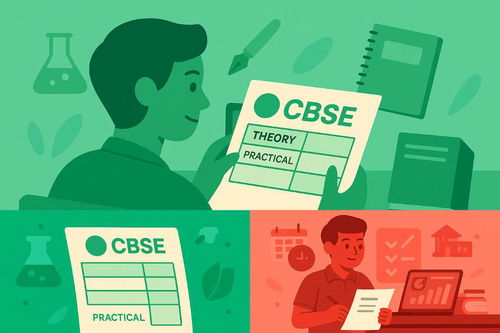
If you are preparing for CBSE Class 10 or Class 12 exams this year, it is essential to know the CBSE passing marks rule. Both theory and practical exams have separate cut-off marks. Missing even one can lead to failing the subject. In this guide we will explain everything you must know. We will cover passing marks for theory and practical. We will also show how you can avoid surprises and clear your board exams with confidence.
Why Passing Marks Matter in CBSE Exams
Passing marks are the minimum marks needed to pass each part of your exam. In many subjects, you need to pass both theory and practical separately. CBSE follows strict guidelines to ensure fairness and consistency. Knowing these rules helps you plan your studies and track progress. Let’s look at what you need to know for theory, practical, and overall marks.
Theory Exam Passing Criteria
For CBSE board exams students must get 33 percent or more in theory paper. In Class 10 subjects, theory marks vary from 30 to 80 based on subject. In Class 12 main subjects theory weight can go up to 70 or 80. You must score at least 33 percent to pass that component.
If you get less, you fail that part and the whole subject. CBSE gives you a chance to appear in the compartment exam for that subject. But you should strive to avoid that by securing theory marks in the first attempt.
Practical Exam Passing Criteria
In practical oriented subjects like Science, Mathematics, Music, or Physical Education you also need to clear a practical or internal assessment component.
In Science (Physics, Chemistry, Biology), practical weight may be 30 or 40 marks. To pass the practical you need at least 33 percent of that mark. The internal marks include practical, projects, or oral tests. You must pass these separately to clear the subject.
If you fail practical but pass theory, you still need to retake the practical or the subject in compartment exam if allowed.
Internal Assessment Marks in Theory Subjects
Apart from practical subjects CBSE requires internal assessment and periodic tests. Subjects like English, Home Science, or Computer Science may include internal evaluations worth 20 marks. You have to obtain the minimum required score in those too. Missing the internal cut-off may affect your result even if you pass the theory exam.
Combined Passing Criteria
After theory, practical, and internal assessment calculations your total should be above 33 percent. But failing any single part will lead to report as fail in that subject. You need to pass every component individually. CBSE uses clear rules for failure at the component level and not just overall percentage. Knowing this helps you focus on every part of the subject.
CBSE Class 10 Passing Rules
In Class 10, every subject has equal weight for theory and internal marks. Here is what to expect:
- You must score at least 33 percent in theory (max 80 marks in most cases).
- You must score at least 33 percent in internal assessment like notebook, presentation or periodic assessment.
- Your overall score must still be 33 percent or more across both parts.
- You cannot pass one part and fail another.
So if you score 27/80 in theory you fail even if you get full marks in internal.
CBSE Class 12 Passing Rules
In Class 12, the system is much the same. However many main subjects have a higher theory weight like 70 marks and internal or practical weight like 30 marks. You still need to score:
- At least 33 percent in theory marks out of maximum.
- At least 33 percent in practical or internal.
- Overall you must reach 33 percent across the subject.
For subjects without a practical like History or Economics your total theory marks may be 100. There still proportionate internal marks may apply. You should check subject wise marking scheme.
What If You Fail to Achieve Passing Marks?
If CBSE finds that you have failed any component, the result will show “Fail” in that subject. You may then be eligible for a compartment exam for that specific component.
For Class 10 compartment exams, CBSE guidelines allow only one attempt later in July. You get to reappear in only that subject. Passing it will make your subject result updated as "Pass after Compartment".
For Class 12, you also get one opportunity to clear the subject in the compartment exam held later.
How to Ensure You Pass Both Theory and Practical
Here are some tips that help you stay safe:
- Understand the weightage of every subject—what percentage goes to theory versus practical.
- Work on improving internal assessment marks through regular practice, projects, or presentations.
- Practice solving past theory papers under timed conditions. Aim higher than 33 percent to build buffer.
- For practical oriented subjects, practice experiments and viva thoroughly. It helps raise practical marks above the minimum.
- Use revision tools and quizzes from AllRounder.ai Class 10 Courses, Class 12 Courses, and CBSE Board Courses to track your strengths and weaknesses.
How CBSE Marks Are Averaged Across Pass Criteria
When calculating your final mark for a subject, CBSE adds your theory and practical or internal component. But the pass criteria still demand individual passing marks in each. Passing only one part with a high score does not override failure in the other part. CBSE design ensures fairness and standardised evaluation.
Why This Passing Rule Is Important
CBSE wants to maintain academic standards. A student should not just pass because they got high internal or high theory alone. They must know both the theory and applied sections. This structure encourages balanced learning across both formats. Students also learn the value of consistent effort across theory lessons and practical application.
Common Mistakes Students Make
Many students rely on internal marks only. They think scoring high in practical or projects is enough. But if they fail the theory they end up failing the subject. Others may do fine in theory but neglect the internal part. Some students disregard theory revisions because they focus on internal performance. These can lead to results that are incomplete or invalid. It is best to stay balanced.
Role of AllRounder.ai for Balanced Prep
AllRounder.ai provides tools that help you understand both theory and practical parts equally well. You can practise:
- Timed chapter quizzes
- Theory explanation videos
- Concept flashcards
- Subject revision
- Track progress and weak spots through analytics
When you combine board exam theory prep with digital tools, your conceptual clarity improves. You are more likely to secure passing marks in both parts.
What Happens When You Improve in Compartment
If you pass in a compartment exam later this year, your result will be updated. Your marksheet will reflect the new result. If you successfully pass the compartment part, CBSE marks your card as “Pass after Compartment.” The subject is considered fully passed. This is why it helps to clear both parts at once to avoid additional exams.
How to Approach Subjects Without Practical
Subjects like English, History, Economics, or Geography generally do not have practical tests. They only have theory and internal assessments. You must still score 33 percent in the theory section. The internal component carries a separate internal assessment weight such as 20 or 30 marks. The same criteria apply. Failing the internal part will still lead to fail even if you pass theory.
What If Internal Marks Are Missing or Disputed
If your school misses submitting your internal marks, or there is a clerical error, you must contact school authorities immediately. Internal marks are uploaded on the CBSE portal before result declaration. Any issue found later can be raised formally with school for correction. Always verify your final subject mark structure during result declaration time. Errors when found early can usually be corrected.
Practical Labs and Grade 12 Experiments
For subjects like Chemistry Physics or Biology you must pass practical. These include lab work, photograph record, viva voce, and project marks. You must score at least 33 percent in this aggregate. Missing practical or incomplete logs can harm your results. You should complete all practical assignments and viva sessions before exams. CBSE rarely offers a separate compartment for practical only. You should aim to pass all parts in the first attempt.
Role of Assessments and Remedial Work
Many schools conduct remedial sessions before final exams. These help weak students improve their internal marks. Attending these extra classes and completing component assessments may help avoid failure due to missing internal marks. CBSE also encourages moderation rules if a student’s performance drops significantly due to disruption. These cases are assessed individually.
Final Words of Advice
Understanding the CBSE passing marks criteria for theory and practical is crucial for success in board exams. You must focus equally on theory, internal assessment, and practical. Earning just over 33 percent in each part will secure your subject pass. Do not ignore internal parts. Imagine them as separate exams that matter as much as theory.
Use revision tools and quizzes from AllRounder.ai to support both parts of each subject. Track your progress daily. Target higher than minimum marks so you build confidence and a buffer.
You have the ability to succeed. Understanding the rules clears confusion. Balanced preparation brings peace of mind. With knowledge and effort, you can pass CBSE board exams confidently.
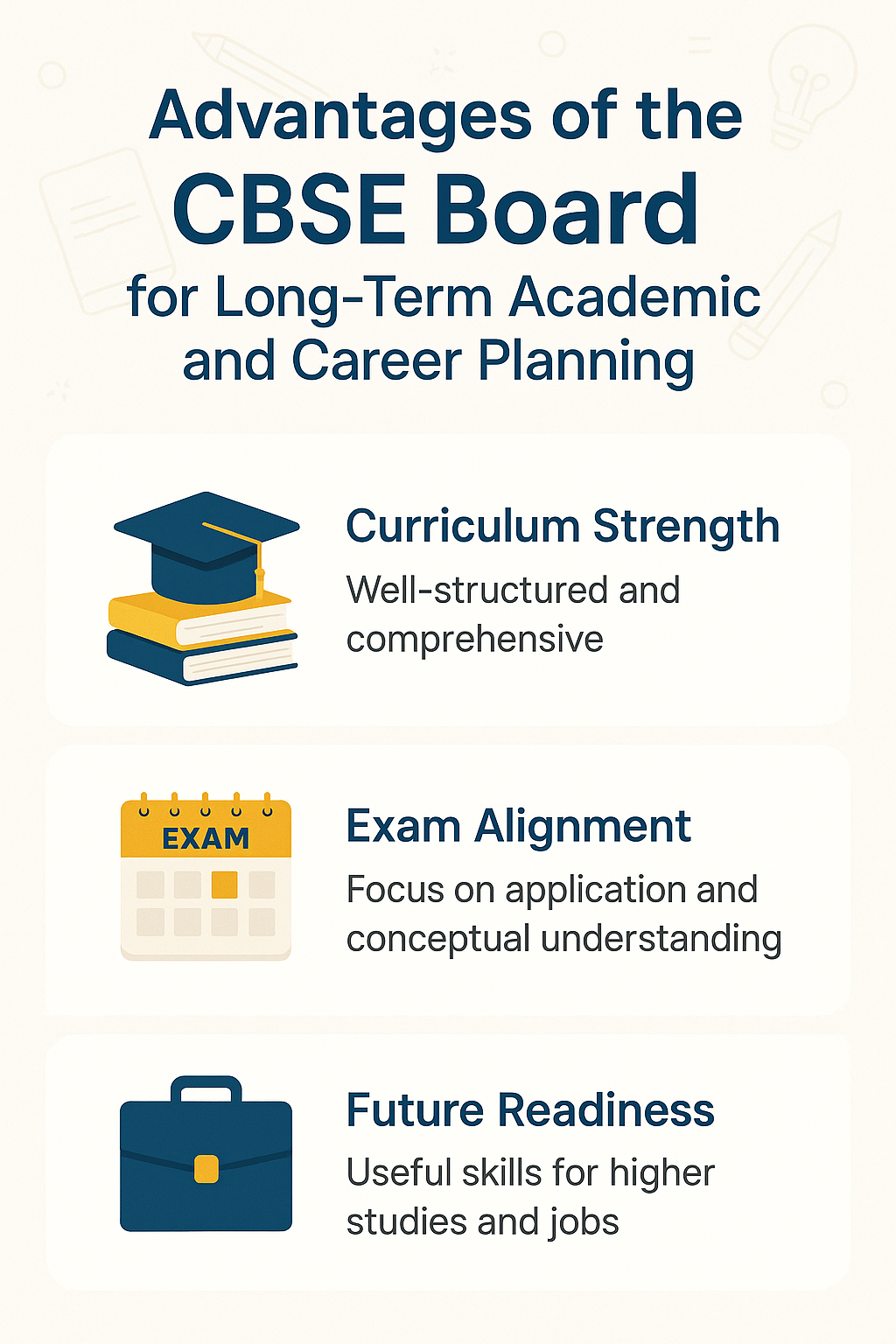
Discover the advantages of the CBSE board for long-term academic and career planning, including curriculum strength,...
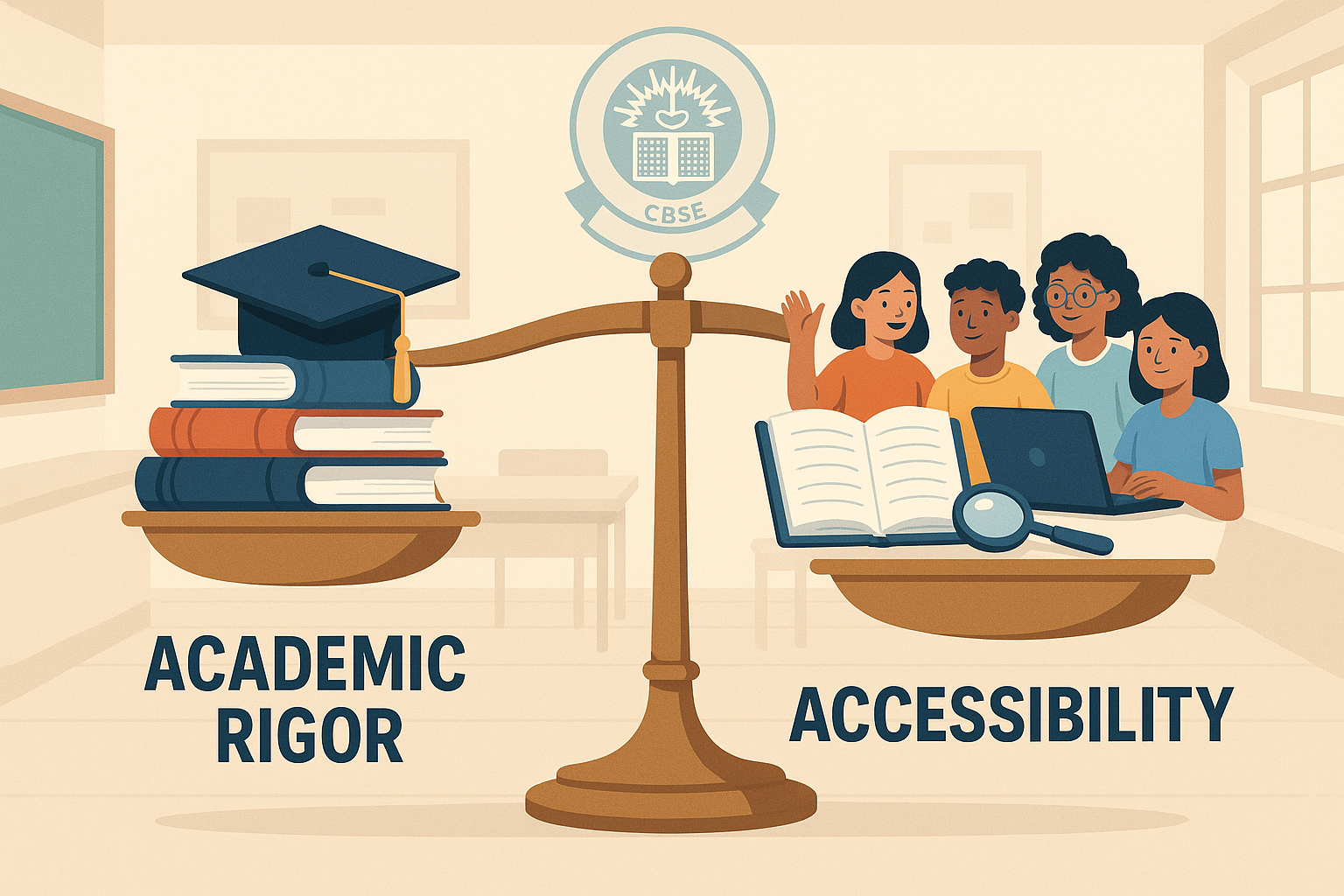
Explore how the CBSE board balances academic rigor and accessibility through its curriculum, syllabus, exams, and...
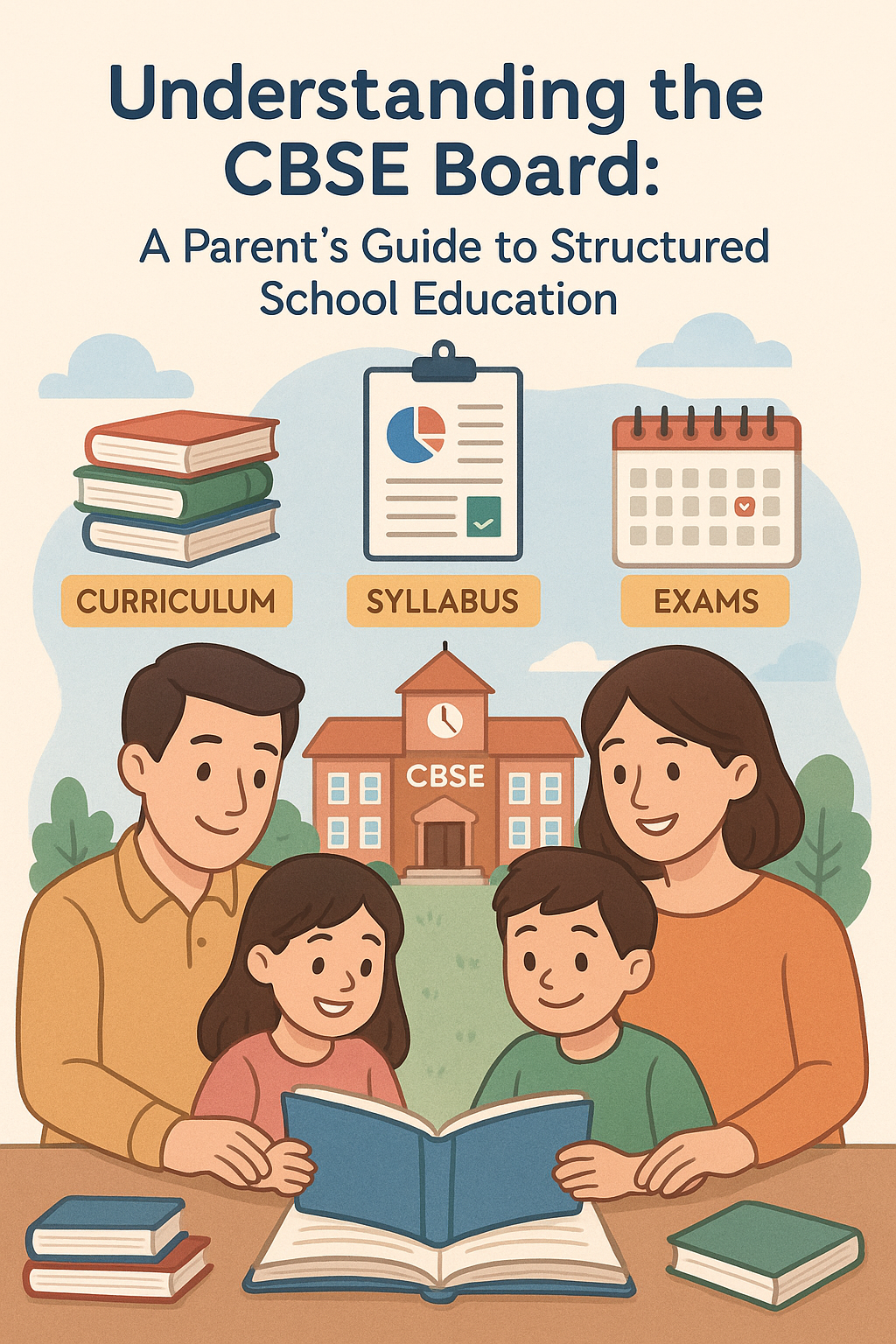
A complete parent’s guide to understanding the CBSE board, its curriculum, syllabus, advantages, exam structure, and...
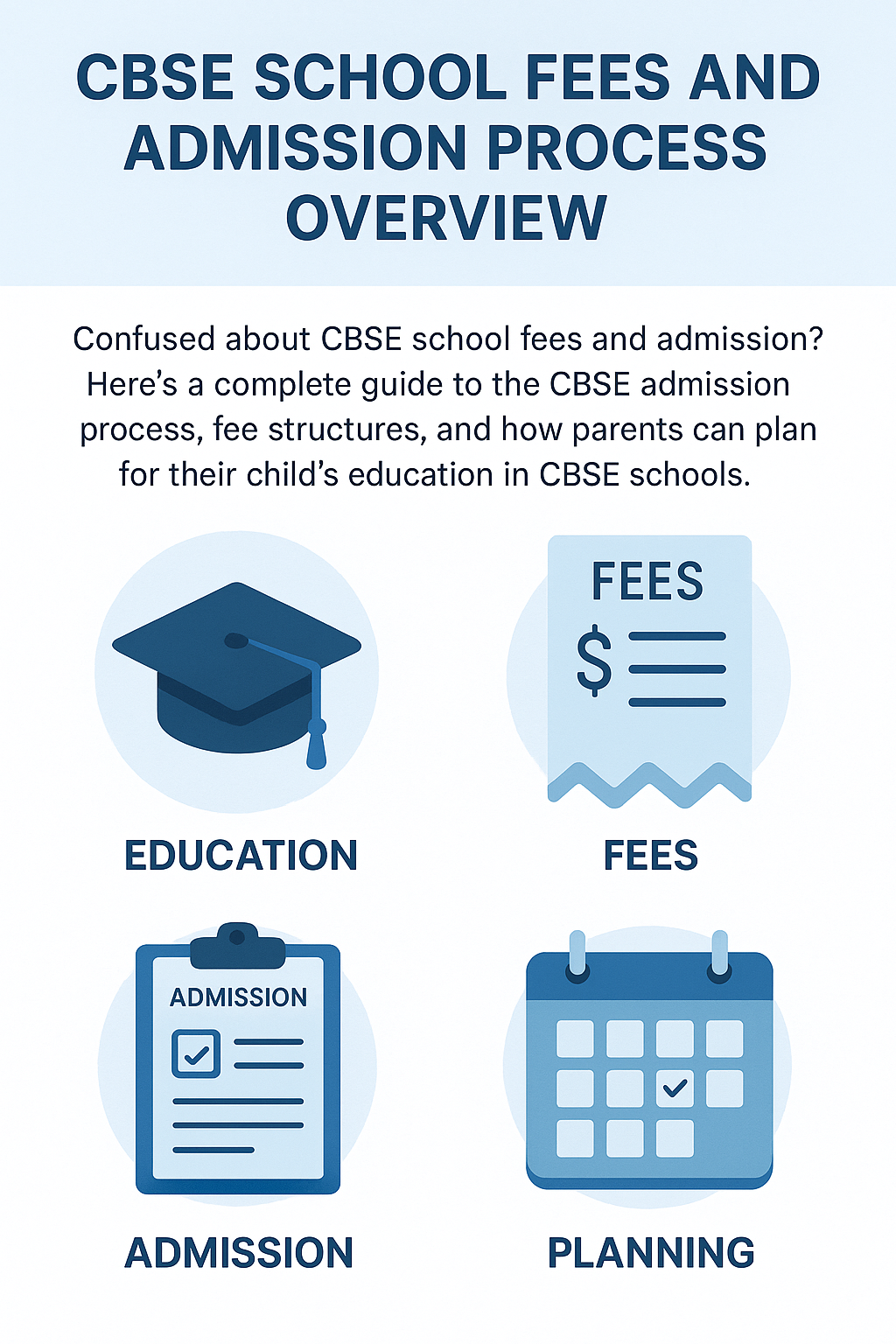
Confused about CBSE school fees and admission? Here’s a complete guide to the CBSE admission process, fee...
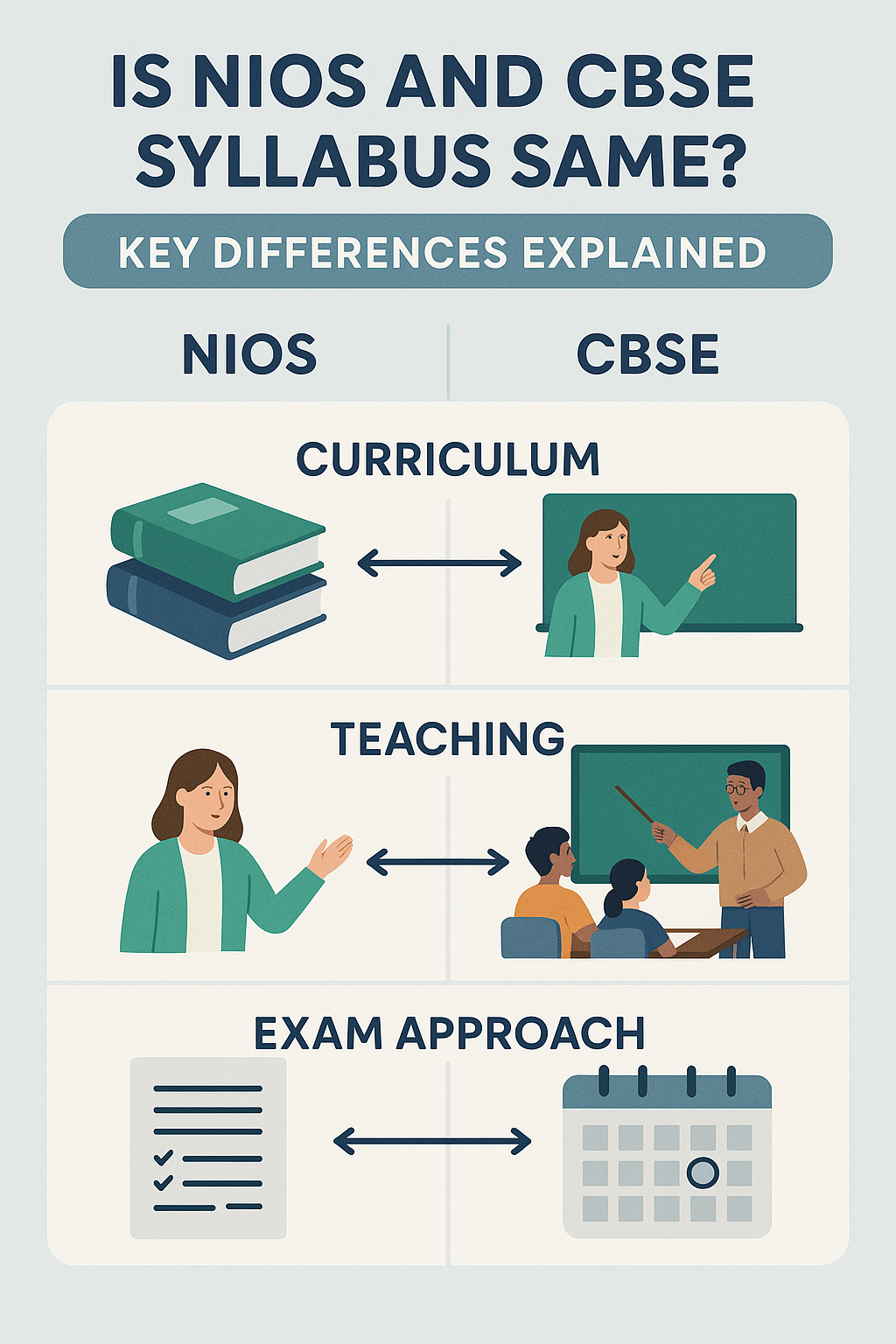
Is NIOS and CBSE syllabus same? Discover the key differences in curriculum, teaching, and exam approach. Learn how...

CBSE Holiday List 2025: Explore the official school calendar, national & regional holidays, summer & winter...

Learn how to calculate your CBSE 12th percentage from your marksheet using the official formula with a simple...
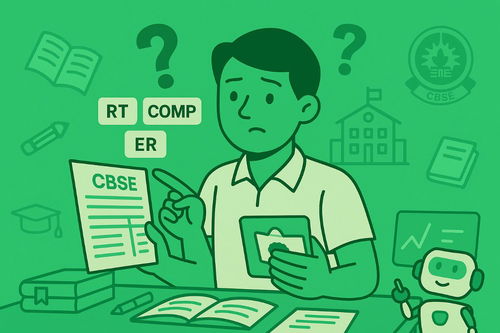
Confused about RT, COMP, and ER on your CBSE marksheet? Learn their meanings, reasons, and what steps you should...
Learn everything about the CTET exam for aspiring CBSE school teachers, including eligibility, syllabus, preparation...

Looking to apply for the CBSE Single Girl Child Scholarship Scheme? Learn eligibility, documents, application steps,...

Discover everything parents and students need to know about the CBSE Class 9 registration process, including...

Learn everything about the CBSE private candidate application process and rules. Understand eligibility,...

Confused about the CBSE answer key? This guide explains how to access it, interpret it, and use it to analyse your...

Confused about how CBSE re-evaluation or re-checking works? This guide explains eligibility, steps, fees, deadlines,...

Discover how to use the CBSE Academics website to access important resources like curriculum, sample papers, and...

Learn how to easily access your CBSE marksheets and certificates using DigiLocker. This step-by-step guide helps...

Confused about CBSE passing marks for theory and practical exams? This guide explains the minimum marks needed to...
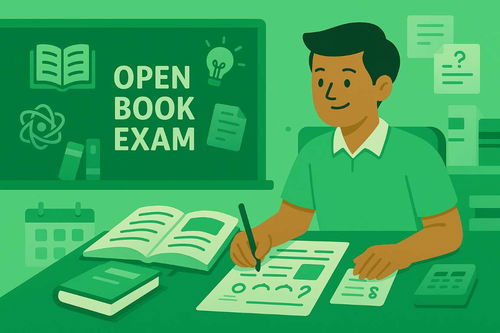
Learn how the CBSE Open Book Exam will be implemented for Class 9 and Class 11 students. Understand the benefits,...
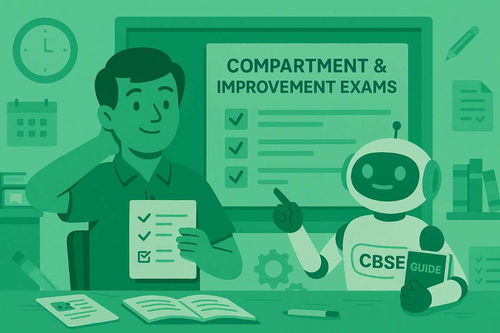
Confused about the CBSE compartment and improvement exam process? This complete guide explains eligibility, how to...
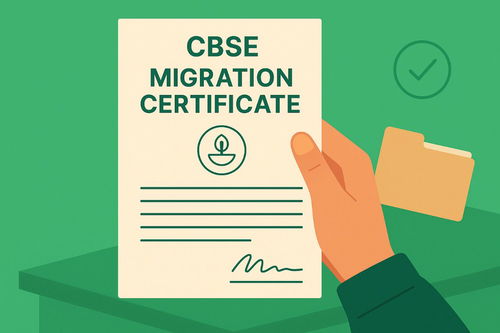
Learn how to obtain your CBSE Migration Certificate after Class 10 or Class 12. This detailed guide walks you...

Confused about your CBSE Admit Card? This easy step-by-step guide explains how to download it, what details to...

Discover what CBSE competency-based questions are and learn how to answer them expertly to you ace your exams.

Boost your Class 10 CBSE board prep with sample papers. Learn how to revise smartly, manage time, and score higher...

Learn how to score high in the CBSE curriculum with a subject-by-subject guide, expert tips, and AllRounder.ai tools...

Compare CBSE vs ICSE to choose the best board for your child. Understand syllabus, teaching style, exam prep, fees, and more.

Understand the latest CBSE marking scheme and question paper pattern. Learn about competency-based questions,...

Want to score above 95% in your CBSE Class 10 boards? Our strategy guide breaks down topper study plans to revision...

Compare CBSE vs ICSE to find the best board for NEET and JEE preparation. Understand syllabus match, exam formats,...

Treat your CBSE Class 12 exams using an athlete's approach to help you train, strategize, and perform your best on exam day.

Get ready for your CBSE Class 10 board exams with our survival kit. Find the official syllabus, a smart study...

Learn how to verify CBSE marksheets, certificates, and results online. Step-by-step guide for students and parents...

Master CBSE with top-rated tools, study planners, and expert online help. Perfect guide for Class 9–12 students...

Learn about CBSE – its full form, history, objectives, and structure. Get insights into CBSE’s role in Indian education.
Resources
-
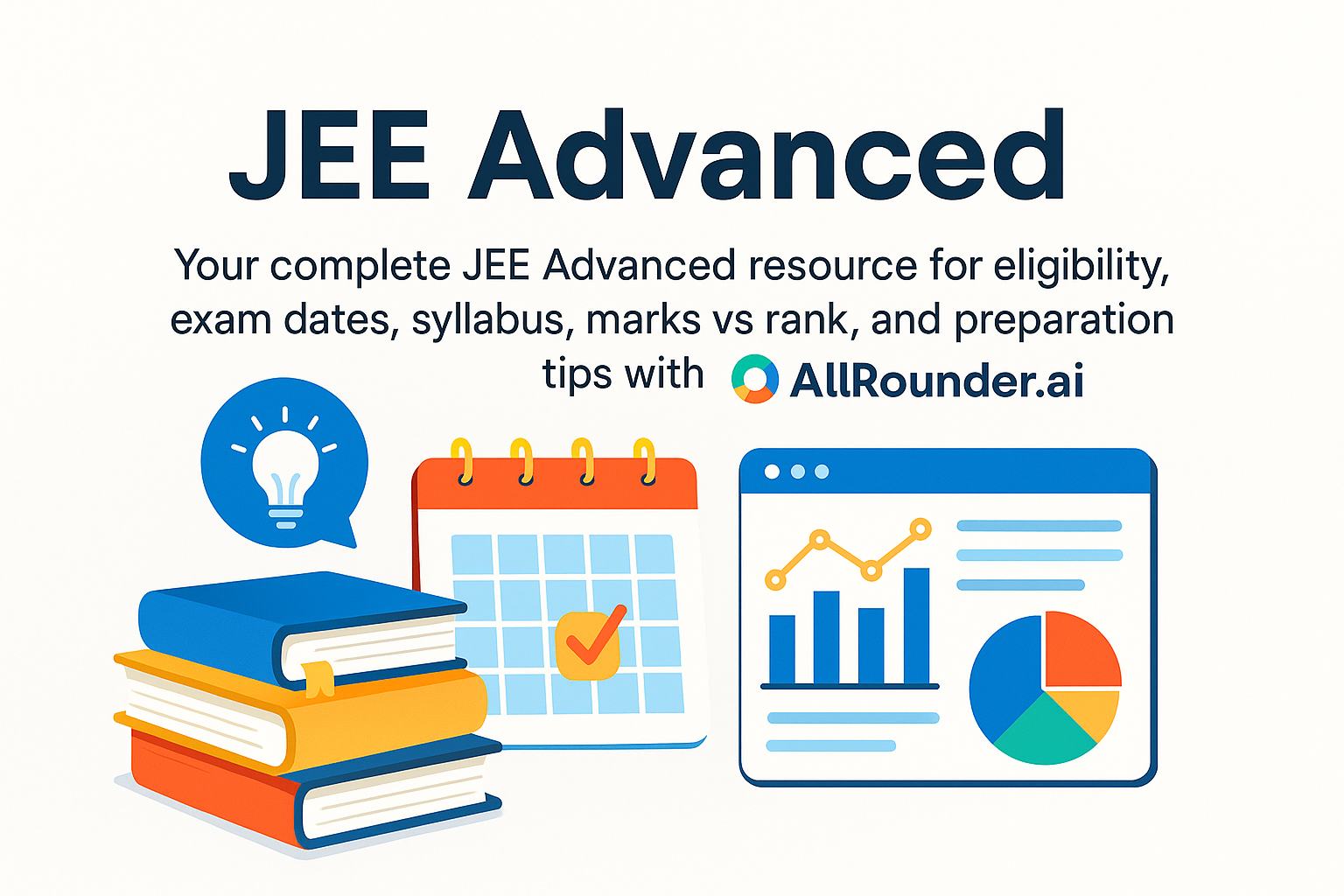
Your complete JEE Advanced resource for eligibility, exam dates, syllabus, marks vs rank, and...
-
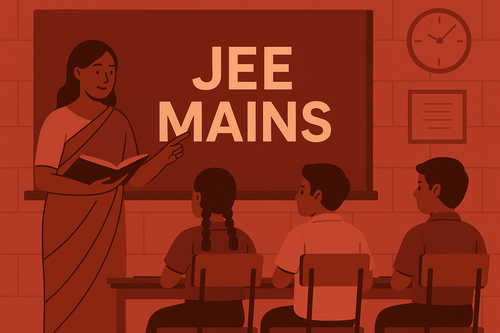
Understand the entire JEE Main process, from application and eligibility rules to the exam...
-

Explore the IB Board – a global curriculum emphasizing holistic, student-centered learning...
-

Learn about CBSE – India’s national school board offering a standardized curriculum, NCERT...
-

Explore everything about the ICSE board – its curriculum, subjects, exam format, and academic...

